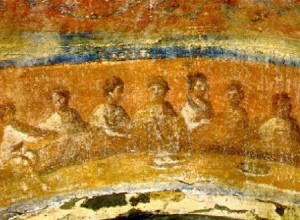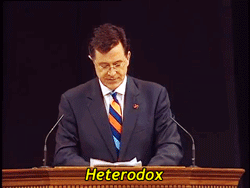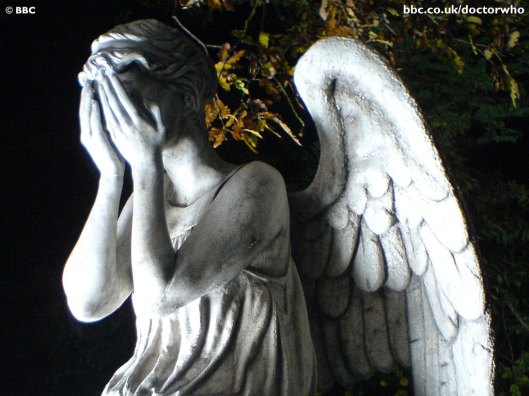When I first introduced our yearlong series on Sexuality & The Church, I polled you for your input and ideas, and the most popular suggestion came from a reader named Lucy who wrote:
“With sexuality (and with singleness) could you look at masturbation from a theological perspective? I think it is something that maybe teenage guys hear about all the time, but rarely even gets whispered about among women. And it's not that I think there would be different rules, but rather I need a theological framework in which to think about it, and no one wants to even begin talking. I'm single and in my 30s and my non-Christian friends think ‘contentment in singleness’ is a euphemism for something. Are they right?”
I wanted to get a diversity of perspectives in response to this question, so I contacted several folks whose opinion on matters related to sexuality I respect, and asked them this question:
Is masturbation an acceptable component to healthy sexuality for Christians?
Below are responses from Abigail Rine, Anna Broadway, Richard Beck, Dianna Anderson, Matthew Lee Anderson, Jenell Williams Paris, and Tara Owens. I hope you learn as much from them as I did!
Abigail Rine

Abigail Rine teaches literature and gender studies at George Fox University. She writes for The Atlantic Sexes and is the author of the forthcoming book Irigaray, Incarnation and Contemporary Women’s Fiction. Find her at Mama Unabridged or on Twitter.
I am sure others are better equipped to speak to the biblical/theological dimension of this conversation, so I’ll just say that I do not see the Bible as giving any sort of indictment against masturbation, although a puritanical narrative of sexuality is often imposed upon the Bible to make it seem that way. I think that masturbation can absolutely be a healthy part of both married and unmarried sexuality. (Of course, any sexual behavior can be distorted and used in unhealthy ways, but I’m not going to go into detail about that either, because that is often where the conversation begins and ends.) Instead, I’m going to give some specific examples of how I see masturbation as a healthy part of sexuality:
1) For those who plan to wait until marriage to have sex, masturbation can be a healthy way of dealing with natural sexual desire while single. The expectation that young men and women should go ten or fifteen years or more beyond puberty without expressing their sexuality in any way – and then suddenly “turn it on” when married – is, I believe, completely unrealistic and potentially harmful. How can we expect people to embrace the sexual dimension of embodiment in marriage while pushing the message that touching certain parts of one’s own body is inherently dirty and shameful?
2) Speaking about female sexuality in particular: we have this naïve idea that all women can reach orgasm through vaginal intercourse alone, which is just not physiologically true for the majority of women. I think masturbation can be an excellent way for individual women to learn the uniqueness of their bodies and how they experience pleasure, which can then be communicated to a spouse.
3) To get a little more personal: I had a baby six months ago, and in the wake of the physical trauma of childbirth, I felt like my body had been totally rewired. For the first time, I began to dread and fear having sex with my husband, which was incredibly disconcerting. Exploring my own body has been very helpful in making me feel physically normal and like a sexual being again – and this had fed directly into rebooting my sex life with my husband. I am also glad that my husband was able to use masturbation to get sexual release while I was physically unable to have sex with him – this took the pressure off of me while I was coping with the intense physical and emotional demands of caring for a newborn and recovering from pregnancy/birth.
Anna Broadway

Anna Broadway is a writer, avid knitter, and modestly ambitious cook living near San Francisco. The author of Sexless in the City: A Memoir of Reluctant Chastity, she holds an M.A. in religious studies from Arizona State University and has written for The Atlantic website, Books and Culture, Paste, The Journal of the History of Sexuality, Christianity Today, Beliefnet and other publications. Find her at sexlessinthecity.net or on Twitter.
Whether or not masturbation can be part of healthy sexuality depends on how we define the second part of the question: healthy sexuality. Based on my reading of the Bible, I believe sex is one of the many ways God created humans to bear the image of our maker in the world.
Who is that maker? According to the historic, creedal understanding, a triune God: one being, three persons. That paradox is very difficult to understand, but I think that's one reason God created both man and woman — the multiple persons in the trinity couldn't be represented in human form without different types of persons. How then are we to understand the profound unity possible between the different persons of the Trinity? I would argue the best picture God gave us was marriage — and in particular the sexual union between man and wife.
If that's true, it's hard to escape the conclusion that the primary purpose of sex is profoundly relational: it's meant to tightly unify husband and wife in a profound, material metaphor of the self-giving love shared within the Trinity. So when it comes to masturbation, I have had to conclude that it falls short of God's intention for human sexuality. In my randiest, loneliest moments, I can certainly wish for a different conviction, but even then, what I most desire is not the freedom to masturbate with a clear conscience, but to be married and near enough to that spouse to once again fumble our way through the best earthly picture we have of the Trinity's penultimate love.
Richard Beck

In addition to being one of my favorite bloggers, Richard Beck is Professor and Department Chair of Psychology at Abilene Christian University. He is the author of Unclean: Meditations on Purity, Hospitality, and Mortality and The Authenticity of Faith: The Varieties and Illusions of Religious Experience. Richard is married to Jana and they have two sons, Brenden and Aidan. He blogs at Experimental Theology.
First, I'd like to bring up the issue of Internet pornography and its relationship to masturbation. With the rise of Internet porn, the consumption of pornography has reached unprecedented levels. And it's difficult, to say the least, to reconcile that consumption and the support it gives to the adult entertainment industry with the Christian commitments of justice and love. To be sure, many will battle with pornography all their lives, like an alcoholic fights daily for sobriety. There must be grace for our failures, but this is a battle that must be fought.
And beyond issues related to justice, psychologists are only just beginning to grasp the full impact of pornography upon our brains and how those effects are creating sexual and relational dysfunction. For an introduction to the issues psychologists are beginning to examine see Gary Wilson's widely-viewed TED Talk.
That issue duly noted, let me get to my main points:
I think it is important to recognize how masturbation functions in the life of those who are single. And even for those who eventually get married, we need to note how marriage has become increasingly delayed in Western cultures. A 2011 Pew Report found that the median age of (first) marriages was 29 for men and 27 for women. In the 1960s the median averages for both genders was in the early 20s, and in ancient cultures we married as teenagers. Given this delay, how are we to manage our sex drive from the onset of puberty to wedding night? To say nothing of the sexual challenges involved in lifelong singleness.
All that to say, masturbation may be a vital aspect in how single persons cultivate and achieve sexual chastity. That is, masturbation may be a critical part in how a single person achieves emotional and sexual well-being if they hold to an ideal that sexual relations should only take place within a covenanted, life-long, monogamous relationship.
In short, I don't think the physical act of masturbation should be moralized. The real issue in this conversation, the big elephant in the room, is Jesus' prohibition against lust (cf. Matt. 5.27-28). Masturbation per se might not be a sin but what about the attendant lust? Can you masturbate to the point of orgasm without lust being a part of that experience?
And yet, I think this observation shifts the topic away from masturbation toward a theology of lust. What does it mean to lust? Should transitory erotic feelings be considered lust? Or is lust something more obsessive, persistent, greedy, covetous, acquisitive, and possessive in nature?
Because if transient erotic feelings are not lust then let me make a somewhat counterintuitive point: masturbation might be a great tool to combat lust.
Sexual arousal can be come psychically consuming, and debilitating, if not given a quick physiological outlet. We've all experienced this. When sexually aroused, it's hard to concentrate on anything else. Our mind is fixated on the object of arousal. And trying to repress these feelings often exacerbates them. How, then, to get past these feelings and impulses? Physiological release can help here. Masturbate, clear your head, and move on with your day. When masturbation is treated in this almost perfunctory manner, as a physiological catharsis, it can be a very healthy means of quickly ridding yourself of unwanted sexual feelings and distractions.
To be sure, if masturbation isn't being used in this perfunctory manner and is being accompanied by regular and possessive fantasies toward someone who isn't, say, your spouse, then more might need to be said, (along with what I said above about pornography). But again, the issue then is less with masturbation than lust and how that lust might be symptomatic of relational issues that need attention.
Dianna Anderson

Dianna Anderson is the author of the forthcoming book, DAMAGED GOODS, out in Spring 2015 from Jericho Books. When she is not writing, she is on the lookout for a new day job. She resides in the Chicago area. Find her on her blog or on Twitter.
Is masturbation an acceptable component to healthy sexuality?
Short answer: Yes. Long answer: Yes, absolutely. In fact, I might scratch "acceptable" from there and change it to "important."
I think, when thinking about this question, the first thing we need to do is separate masturbation from pornography. Masturbation is not de facto coupled with pornography, and therefore is not in itself problematic. A lot of Christians leap quickly from one to the other, and it's important to make a distinction. Pornography is a completely separate beast of a question.
Like sex itself, masturbation is sinful only insofar as you use it sinfully. And what counts as "sinfully" for one person may not be sinful for others. This, most of all, requires knowing and understanding yourself and what your limits are. If you don't feel comfortable masturbating because you feel like it takes you to a bad place where you objectify other people, then don't do it. We make mistakes in christendom when we assume that masturbation is problematic for some, so no one, ever, should do this private thing. That's a problem, because my lines about what is sinful are not your lines, and making you conform to my lines in something as intensely complicated as sexuality won't end well.
As far as it being a component of healthy sexuality, it can be a helpful tool for understanding yourself and what feels right and what doesn't before you ever enter into a sexual relationship. It can also make you more comfortable and more confident with your own body so that you are more comfortable when the time comes with a partner. Masturbation can be an important component of a healthy sexuality and can be an important part of a healthy sex life (if you're comfortable taking care of yourself, there's less pressure when you're with a partner). It can be misused and abused, like any good thing, certainly, but it can also be a great boon to understanding and becoming comfortable with yourself as well.
Matthew Lee Anderson

Matthew Lee Anderson is the author of Earthen Vessels: Why our Bodies Matter to our Faith and The End of our Exploring: A Book about Questioning and the Confidence of Faith. He blogs at Mere Orthodoxy.
If our ethic is to be Christian, then it must be qualified by the cross and resurrection of Jesus. That is to say, the pattern for our lives and actions must be shaped by a love that treats pleasure as the (sometimes delayed) fruit of our sacrificial self-giving for others, rather than a good without qualification.
If we disconnect the experience of sexual pleasure from the moment of giving ourselves for another, to another in love, we fundamentally distort the meaning of the human body in its sexual dimension. In the auto-eroticism of masturbation, we pursue a particular sort of satisfaction or a particular experience of pleasure. But it is through the mutual self-giving in love that our humanity is established (whether in sex or beyond), rather than the abstract experience of pleasure or the fulfillment of a craving or felt need. However enjoyable it might be, masturbation fails to fulfill this form of human sexuality, and as such is corrosive to the integrity of our persons and our intimacy of the Spirit.
Jenell Williams Paris

Jenell Williams Paris is a professor of anthropology at Messiah College in Grantham, PA, and the author of The End of Sexual Identity: Why Sex Is Too Important to Define Who We Are.
Christians often talk about the morality of masturbation as if, were it to be definitively deemed immoral, people would stop doing it. It seems to me that a better question is, “Given that most people masturbate, how can we see even this area of life in the light of faith?”
Social science research finds that most people masturbate, including both adolescents and adults, men and women (higher proportions of men than women), and those who are single, married, or partnered. Some people don’t do it at all, for a variety of reasons including faith conviction or partner expectations. Masturbation can be compulsive, but it isn’t necessarily. It doesn’t typically replace face-to-face relationships, but for younger people today, males especially, easy and constant access to pornography distorts their drive for, and their behavior in, relationships with women.
Masturbation is very much like all other dimensions of human sexuality, which is very much like spirituality. There is gift, beauty, understanding, and pleasure, but also mystery and not-knowing; we live with incomplete understanding of ourselves, our intimate partners, and the sacred. There is also temptation, darkness, and sin. In masturbation, marriage or intimate partnership, and in the spiritual life in general, we encounter confusing, disturbing, and unwanted impulses, fantasies, and behaviors.
Christianity is often reduced to a moral system that encourages (or harangues) people toward being good instead of bad. But like life in general, sex seems to defy our attempts to be good; in both masturbation and in sexual partnership, unruly, wild, and unpredictable parts of ourselves often emerge. If cared for, acknowledged, and brought into the light, the wildness of sex still doesn’t submit to domestication, but it can offer practice in humility, humor, and groundedness. When we ignore it, trying to be more angel than human, what is repressed often returns in distorted and harmful forms.
We were created human, not angels, and nothing highlights that more insistently than sexuality. Learning to handle, acknowledge, and discuss sexuality – including masturbation – with appropriate boundaries and in trusted circles, is part of the journey toward authentic personhood. Perhaps it even relates to something Jesus said, “Come to me, all you who are weary and burdened, and I will give you rest. Take my yoke upon you and learn from me, for I am gentle and humble in heart, and you will find rest for your souls. For my yoke is easy and my burden is light” (Mt 11:28-30).
It’s no surprise that our best efforts to be good make us feel weary and burdened. We settle for moral judgment, shame, and silence, when the ease, the lightness, and the gentleness of our Savior is right there for us.
Tara Owens

Tara Owens, CSD, is a spiritual director, speaker
and author with Anam Cara Ministries. She teaches on the topic of
spirituality and sexuality in seminaries and spiritual direction training
programs throughout North America. She has a book on spirituality and the body
coming out with InterVarsity Press in 2014. You can connect with her on Twitter or
Facebook.
The
term healthy sexuality presupposes
that we have a good idea of what our sexuality is and does, and I would argue
that, for the most part, both our culture and the Church have fairly disordered
models of what sexuality is supposed to look like. Part of the reason we
struggle with the question of masturbation is because we have trouble living in
the tension of our desires. It’s easier (and I find the tendency in myself
almost every day) to fall back onto the black and white rules that we’re often
offered as answer to our struggles instead of doing the hard work of
encountering our own desires and longings in relationship with God and others.
For the most part, we’ve been given two sets of unhelpful “rules” for what we
should do with our sexuality: (1) respond to our sexuality as an appetite, like
hunger, and feed appropriately or (2) avoid or subjugate our sexuality as
something to be expressed only in covenanted conjugal relationship and ignored
or sublimated at all other times. This is a false dichotomy, and both of these
paradigms tend to end up in dysfunction. We either find ourselves at the mercy
of our “needs” which leads to a low grade despair, or divorced from the life
and pleasure that sexuality brings, living in a kind of discontented numbness.
Like
many of the questions surrounding sexuality, I don’t think we can find simple
answers—or any answers that hold together in real life situations—outside of
the context of relationship. For me, sexuality is broader than mere genital
expression (intercourse, foreplay, masturbation, etc.), and encompasses all of
the embodied ways that we desire connection with the world, with one another,
and with God—as well as all of the ways we go about expressing that desire.
While that definition can be taken to extremes, taking a broader view of
sexuality allows us to see the ways that sexuality impels us to connection with
one another. Taken in this context, masturbation and whether or not it is a healthy
expression of sexuality for a particular individual become questions of whether
or not the acts of masturbation at a particular season of life are drawing you
deeper into isolation from others and from God, or into deeper connection and
intimacy.
How
does this play out? The answer will be different for different people in
different contexts—but the principles underlying those answers will be the
same. A single woman in her 20s who is discovering her body and her desires
might be approaching masturbation as a celebration of sexuality and the gift of
her body and desires; she could equally begin using masturbation as a place to
take her sorrows, longings, and insecurities. In the former, masturbation can
be a healthy expression of sexuality if kept squarely in the context of a relationship which, in her case, is with God, with her future mate, and with
herself. In the latter, masturbation quickly becomes a place to go to hide from
others and God, a place that, like any appetite-fulfilling activity, can quickly
lead to addiction. Ultimately, the question of whether or not masturbation is
healthy for a particular person springs from the question that governs all good
discernment: Does this action help me love myself and others more fully and
freely, and does it allow me to love God more deeply and with more of myself?
If
you take this question as your baseline for the question of masturbation, a
husband who chooses masturbation for a season while he and his wife parent
young children can be seen as freeing and loving—a choice appropriate to
healthy sexuality—as masturbation can take the sexual pressure off of the
relationship and lead to greater intimacy (as long as the decision is discussed
and not made unilaterally). On the other side of that situation, masturbation
chosen out of frustration and expediency would push him further away from his
spouse, compounding relational tension and making loving each other and God a
further hill to climb in an already exhausted and exhausting situation.
I
know “yes” or “no” would be easier answers to this question, but I don’t
believe that our sexuality was created by God simply to be treated
mechanistically. I believe sexuality is a gift and a grace that is given to us
by God, and it can produce some of the most radically beautiful and loving acts
as well as some of the most horrible and hateful. As the first line of the
Didache says, “There are two
ways, one of life and one of death, and there is a great difference between
these two ways.”
###
So, is masturbation an acceptable component to healthy sexuality for Christians? How would you answer that question?
I look forward to reading your responses, and plan to share the most popular comment in a post next week!

 Voltaire isn’t an evil robot from an 80’s cartoon, nor is he the bad guy from Harry Potter. Voltaire was an atheist that hated God and the Bible. Near the end of his life he claimed that within 100 hundred years Christianity would be stamped out and known only as a relic of history. Voltaire died in 1778. In God’s irony, within 25 years of Voltaire’s death his mansion housed the Geneva Bible Society. His former residence is now used to churn out Bibles.
Voltaire isn’t an evil robot from an 80’s cartoon, nor is he the bad guy from Harry Potter. Voltaire was an atheist that hated God and the Bible. Near the end of his life he claimed that within 100 hundred years Christianity would be stamped out and known only as a relic of history. Voltaire died in 1778. In God’s irony, within 25 years of Voltaire’s death his mansion housed the Geneva Bible Society. His former residence is now used to churn out Bibles. 






























![f5b3023911bcecbc3d6d97a8[2]](https://www.ai-kan.net/wp-content/uploads/2013/05/f5b3023911bcecbc3d6d97a82.jpg)
![60fbe758a67a4e722934f0e7[1]](https://www.ai-kan.net/wp-content/uploads/2013/05/60fbe758a67a4e722934f0e71.jpg)